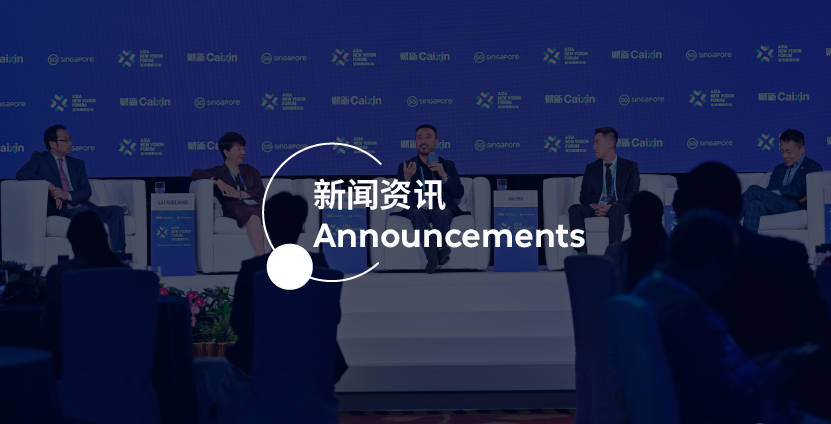


Ian Zhu, Managing Partner of NIO Capital, was invited to attend the inaugural Asia New Vision Forum and participated in two panel discussions. Organized by Caixin Global with the support and collaboration of the Singapore government, the forum received official backing from the Singapore Economic Development Board (EDB) and the Singapore Tourism Board (STB).
During the two-day forum, more than 400 global policymakers, business decision-makers, and renowned scholars engaged in over 30 thematic discussions and dialogues, focusing on the forum's theme of "Calibrating the Compass." Participants shared insights on a wide range of hot topics in the discussion, including the global economy, Asia-Pacific cooperation, financial innovation, digital governance, green technology, and health care.
Participants came from over 10 countries and regions, including China, Singapore, Japan, Indonesia, Australia, the United States, Germany, France, Brazil, and Laos, and engaged in candid and in-depth discussions, focusing on the issues shaping the development of Asia and the world and seeking global development strategies together.
Ian Zhu and Nicolas D Kanter, President Director of Aneka Tambang, one of Indonesia's largest state-owned mining companies, participated in the panel discussion titled "Accelerating the EV Revolution: Unlocking Opportunities and Overcoming Challenges in the EV Industry."
Ian Zhu shared an overview of the global automotive market and provided a specific analysis focusing on China and Southeast Asia markets. He said, "The global automotive market size is approximately 100 million vehicles per year, with China holding a significant market share of 25% to 30%. Any automotive company achieving success in the Chinese market has the potential to become a prosperous enterprise. Chinese companies also have opportunities to expand into international markets. Notably, China emerged as the largest exporter in the world in the first quarter of 2023."

He points out Southeast Asian countries are particularly important for Chinese automotive companies. On one hand, the automotive market in Southeast Asia is rapidly growing. Indonesia's current annual car demand is one million units, while countries such as Thailand, Vietnam, and the Philippines are experiencing demand growth rates of around 15% to even 30%. Besides, the penetration rate of new energy vehicles is also on the rise. On the other hand, Southeast Asian countries possess advantages in terms of resources and labor force, which strengthens their willingness to participate in the development and layout of the regional industry chain.
Zhu stated, "This is an important step for Chinese companies to establish the industrial chain in Southeast Asian countries. It not only serves the local market but also the global market." Additionally, Zhu shared insights on the opportunities and challenges for Chinese companies going global and the key considerations when introducing investments in Southeast Asia.
In the thematic discussion on "Seeking Green Solutions for Cities," Zhu expressed his views on the topics of intelligent and electrified vehicles. NIO Capital has long been focusing on technological innovations in digitization and decarbonization. Considering the future trend of intelligence, Zhu believed that Level 3 advanced driver assistance systems would arrive soon, transforming cars into extensions of homes and offices. Moreover, intelligence development would significantly change the urban design, fundamentally altering the relationship between people and cars.

The energy industry is experiencing significant structural changes, and Zhu emphasized the increasing importance of distributed energy. Many countries, including Australia, have successfully attained household energy independence by utilizing rooftop solar panels, energy storage systems, and electric vehicles, thereby establishing localized energy networks. Notably, surplus electricity can even be sold back to the main power grid, indicating a trend that will progressively become more prevalent.
Renewable energy will also occupy a higher proportion in the energy structure. Currently, the share of solar is only 5%, but by 2030, this proportion may reach 20% to 30%. In the distant future, it may even reach 50%. Zhu expressed great optimism about the market opportunities for distributed and renewable energy.
NIO Capital has long been involved in the comprehensive layout of the automotive and energy industries. We also look forward to collaborating with more innovative enterprises to define a brand-new sustainable future for cities.



